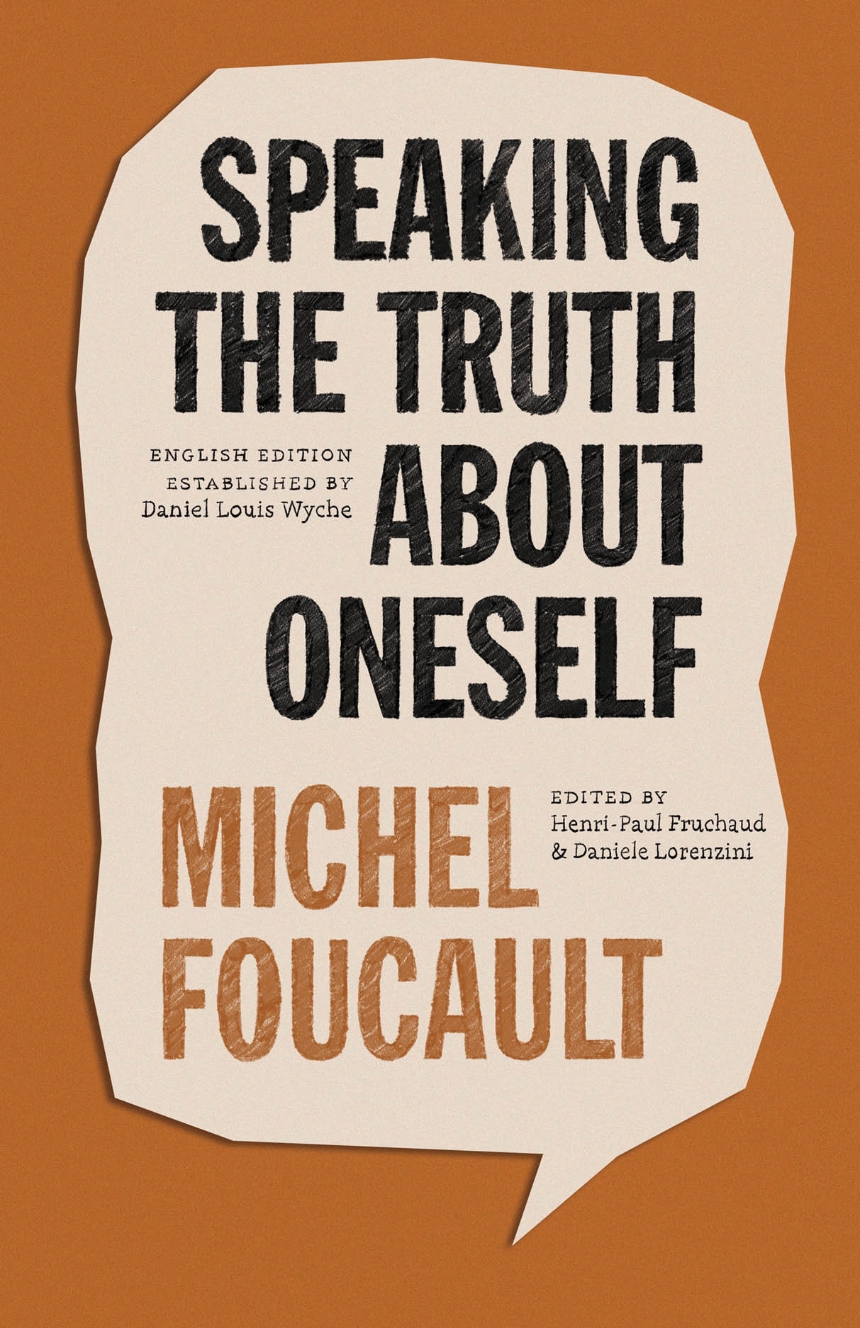Speaking the Truth about Oneself
Lectures at Victoria University, Toronto, 1982
9780226826455
9780226616865
9780226623054
Speaking the Truth about Oneself
Lectures at Victoria University, Toronto, 1982
Now in paperback, this collection of Foucault’s lectures traces the historical formation and contemporary significance of the hermeneutics of the self.
Just before the summer of 1982, French philosopher Michel Foucault gave a series of lectures at Victoria University in Toronto. In these lectures, which were part of his project of writing a genealogy of the modern subject, he is concerned with the care and cultivation of the self, a theme that becomes central to the second, third, and fourth volumes of his History of Sexuality. Foucault had always been interested in the question of how constellations of knowledge and power produce and shape subjects, and in the last phase of his life, he became especially interested not only in how subjects are formed by these forces but in how they ethically constitute themselves.
In this lecture series and accompanying seminar, Foucault focuses on antiquity, starting with classical Greece, the early Roman empire, and concluding with Christian monasticism in the fourth and fifth centuries AD. Foucault traces the development of a new kind of verbal practice—“speaking the truth about oneself”—in which the subject increasingly comes to be defined by its inner thoughts and desires. He deemed this new form of “hermeneutical” subjectivity important not just for historical reasons, but also due to its enduring significance in modern society.
Just before the summer of 1982, French philosopher Michel Foucault gave a series of lectures at Victoria University in Toronto. In these lectures, which were part of his project of writing a genealogy of the modern subject, he is concerned with the care and cultivation of the self, a theme that becomes central to the second, third, and fourth volumes of his History of Sexuality. Foucault had always been interested in the question of how constellations of knowledge and power produce and shape subjects, and in the last phase of his life, he became especially interested not only in how subjects are formed by these forces but in how they ethically constitute themselves.
In this lecture series and accompanying seminar, Foucault focuses on antiquity, starting with classical Greece, the early Roman empire, and concluding with Christian monasticism in the fourth and fifth centuries AD. Foucault traces the development of a new kind of verbal practice—“speaking the truth about oneself”—in which the subject increasingly comes to be defined by its inner thoughts and desires. He deemed this new form of “hermeneutical” subjectivity important not just for historical reasons, but also due to its enduring significance in modern society.
304 pages | 4 line drawings | 5 1/2 x 8 1/2 | © 2021
Philosophy: Ethics, General Philosophy, History and Classic Works
Reviews
Table of Contents
Introduction
Henri-Paul Fruchaud and Daniele Lorenzini, translated by Daniel Louis Wyche
Note on the Reconstruction of the Text
List of Abbreviations of Works by Michel Foucault
Lecture I The Technology of the Self
Lecture II [Second English Version]
Lecture II [Recorded Version]
Lecture III [First English Version]
Lecture III [Second English Version]
Lecture IV
Lecture V
The Seminar, June 1982
First Meeting
Second Meeting
Third Meeting
Fourth Meeting
Notes
Index
Henri-Paul Fruchaud and Daniele Lorenzini, translated by Daniel Louis Wyche
Note on the Reconstruction of the Text
List of Abbreviations of Works by Michel Foucault
Lecture I The Technology of the Self
Lecture II [Second English Version]
Lecture II [Recorded Version]
Lecture III [First English Version]
Lecture III [Second English Version]
Lecture IV
Lecture V
The Seminar, June 1982
First Meeting
Second Meeting
Third Meeting
Fourth Meeting
Notes
Index
